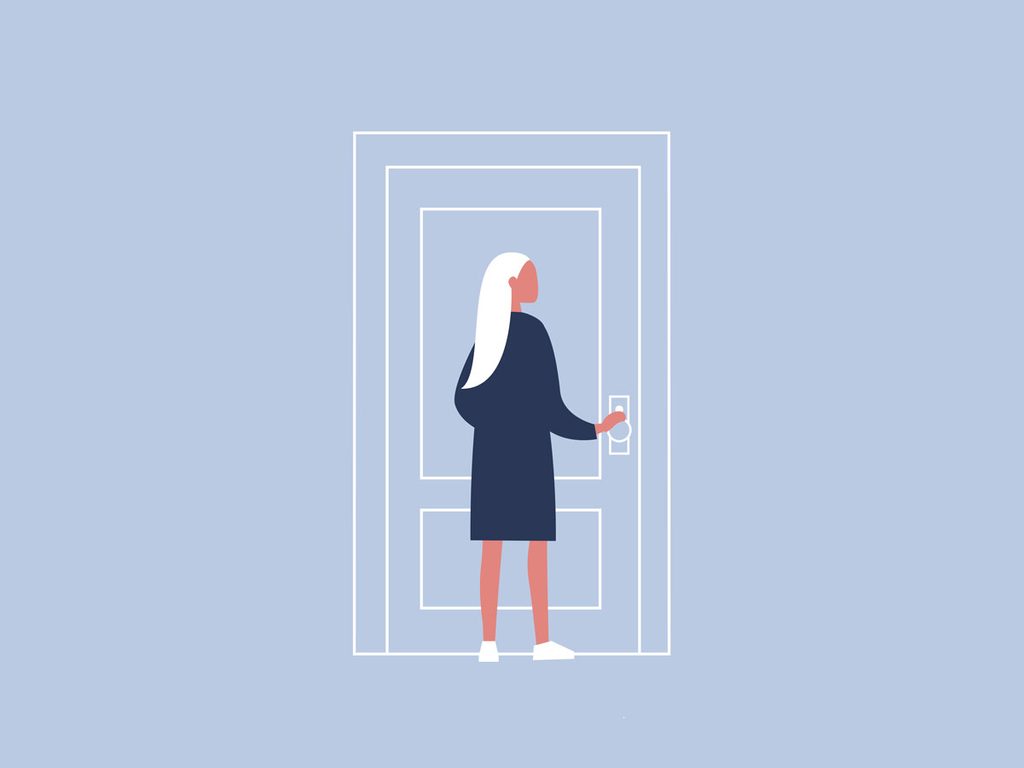8 Surprising Things That Are Linked to Obsessive Compulsive Disorder

Obsessive compulsive disorder (OCD) is a serious mental health condition, and these are some of the risk factors and triggers you should know about.
Obsessive compulsive disorder (OCD) is a serious, potentially disabling mental health condition. In the Canada, OCD affects one in 40 adults, according to The Centre for Addiction and Mental Health (CAMH). OCD symptoms can include repetitive, intrusive thoughts and/or compulsive behaviour related to many things, including a fear of germs, a need for symmetry, or endless self doubt (did I really turn off the stove?).
People with OCD may feel the need to perform rituals including counting, checking, praying, or hand washing, among others. The disorder can range in severity, but people can feel the need to repeat these ritualistic behaviours—sometimes hundreds of times a day, or to the point of self injury—to ward off overwhelming feelings of anxiety related to their thoughts. The mental health disorder can interfere with daily activities and relationships, including their work and home life.
Although OCD affects many people, the underlying causes of OCD are not fully understood. However, it’s thought to be a combination of genetics, brain chemistry, and environment. Here are some factors that have been linked to OCD, which may aggravate or increase the risk of symptoms in people who may be vulnerable to the disorder.
Your upbringing
Helicopter parents tend to be overprotective (read: smothering), and this may increase vulnerability for OCD in some children, says Meredith E. Coles, PhD, professor of psychology at Binghamton University and director of the Binghamton Anxiety Clinic in Binghamton, New York. Other potential risks for developing OCD include having a lot of responsibility when you were young or having very rigid rules forced upon you. Stressful or distressing situations can bring on or exacerbate symptoms for people who are predisposed to OCD.
It’s still too early to say anything definitive about these links, and how genes might interact with childhood environment to increase the risk of developing OCD. “We know a lot about treating OCD when you have it, but very little on how it develops and when it develops,” Dr. Coles says.
Your sleeping habits and patterns
Yes, lack of sleep makes everything worse, and OCD symptoms are no exception, Dr. Coles says. “Your bedtime and the number of hours that you sleep predicts your ability to control or resist obsessive thoughts,” she explains. In a 2018 study, published in Sleep, individuals with OCD who went to bed way past midnight had a harder time reining in obsessive thoughts. In addition, people who sleep less than the recommended eight hours a night may be more likely to suffer from intrusive, repetitive thoughts, according to a 2018 study in the Journal of Behavior Therapy and Experimental Psychiatry. Light box therapy may reset circadian rhythms and improve sleep quality and quantity, she says. “Research is ongoing, but sitting by a light box for 30 minutes a day can help pull the sleep cycle forward and decrease OCD symptoms.” Light boxes are generally safe, but they should not be used by people with certain eye problems or sun sensitivity, Dr. Coles cautions. (Looking to purchase one? These are the best light box therapy boxes on Amazon.)
Your brain inflammation
Scientists may have found one possible factor related to OCD—inflammation. Brain scans of individuals with OCD showed that inflammation was 32 percent higher in six brain regions known to play a role in OCD than it was among their OCD-free counterparts, according to a 2017 study in JAMA Psychiatry. Furthermore, previous research in the Journal of Neuroinflammation suggests inflammation in the brain may be involved in other psychiatric conditions, including major depressive disorder, schizophrenia, and bipolar disorder. If researchers can find a way to reduce the harmful side effects of inflammation, it may aid in the development of treatments for these conditions.
Your fear of losing control
People with OCD may feel the urge to check and re-check things such as turning off the stove or locking the door. A fear of a loss of control may be related to the checking behaviours that are a hallmark of OCD, according to research. In a 2017 study published in the Journal of Obsessive-Compulsive and Related Disorders, researchers looked at 133 college students, telling some (but not others) that they were at higher risk of losing control over their thoughts and behaviours using “EEG evidence.” While performing a laboratory task to control the pace of pictures, those who thought they were at higher risk of losing control were twice as likely to check which keys to use as those who didn’t think they were at risk for a loss of control. The researchers hypothesized that people’s fear and beliefs about losing control may put them at risk for a variety of psychiatric issues, such as OCD, generalized anxiety disorder, and panic disorder, among many others.
Your exposure to certain types of bacteria
Pediatric autoimmune neuropsychiatric disorders associated with streptococcal infections (PANDAS) is the name given to the rare, sudden and dramatic appearance of OCD and/or tic disorders following a strep infection or the worsening of such after a strep infection. Most of the time PANDAS affects children aged 4 to 14 years, according to the International OCD Foundation. It occurs when the body’s immune system misfires in response to strep infection and targets the brain. Treating the strep with antibiotics is the best way to address PANDAS, according to the National Institute of Mental Health. While they will disappear gradually after treatment, symptoms may return if strep comes back. Many other things have to be ruled out before someone is diagnosed with PANDAS since it is so rare.
Your stress or pent-up rage
No, anger doesn’t cause OCD, but when someone with OCD internalizes anger and rage, symptoms may worsen, says David Straker, DO, a staff psychiatrist at several New York Hospitals including New York Presbyterian-Columbia. “Internalized anger, if it is not expressed (i.e., communicating one’s feelings, exercise, or another outlet), has to go somewhere often leading to depression, anxiety, OCD,” he says. “Not uncommonly OCD flares occur during stressful periods and when one is angry.” Seeking treatment is important as researchers grapple to find the cause of OCD. “OCD can be terribly debilitating, but treatments are available,” Dr. Straker says. Cognitive behavioural therapy (time-limited courses of therapy to change the way you respond to negative thoughts), talk therapy, as well as medications can all make a difference in OCD, he says. (Check out these expert tips for finding the best therapist for you.)
Your fear of guilt
Intense fear of guilt may play a role in OCD, according to a 2017 study in the journal Clinical Psychology & Psychotherapy. People with OCD may perceive guilt to be more threatening than others, leading them to find it intolerable, the researchers found. Any thought or impulse that might inspire guilt may be met with extreme anxiety and compulsive behaviours. Importantly, this applies to being super sensitive to guilt, rather than simply being guilt-prone.
Your birth circumstances
People who were delivered via C-section, born preterm or breech, were unusually large or small as a baby, or who had a mother who smoked 10 cigarettes or more a day during pregnancy, seem to be at higher risk for developing OCD, according to a 2016 study in JAMA Psychiatry study. In the study of 2.4 million children in Sweden, about 17,000 developed OCD, and their average age at diagnosis was 23. The researchers found the more of these individual elements an infant experienced, the greater the odds of developing OCD. However, this type of study can’t prove that those factors were the cause of the OCD—just that they were associated with it. The study is just one more reason to encourage women to stop smoking while pregnant.
Medically reviewed by Ashley Matskevich, MD.
 Lies About Mental Health" width="295" height="295" />
Lies About Mental Health" width="295" height="295" />





